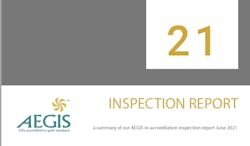a smooth start to the year
As we reach the third week of September, we are very pleased to say that all our guardianship students have now arrived safely at their UK boarding schools. There were a few delays at airports but on the whole everything went smoothly. Our Bright World Buddies - Local Coordinators living close to the schools, have now met up with all newly arriving students and are busy completing their Arrival Visit Reports to upload to our parent portal, Blink.
Having read through the reports, we are pleased that the vast majority of students are really happy and settled. As usual, however, there are always one or two who are struggling with homesickness and culture shock, and our Buddies are offering extra to support to them during these tough times.
what is homesickness?

It can happen to anyone; adults and children alike, and if you have experienced homesickness, it is something that you do not forget. It is caused by the anticipation of, or reality of leaving your home and familiar surroundings, and being in a new place without your normal routines, sights and smells.
It can make you cry a lot and you might feel anxious, lose your appetite, obsessively think about your family and friends and have difficulty sleeping. Homesickness is an unpleasant experience and so at Bright World we aim to support our students through these times, working closely with houseparents and tutors at schools, so they can settle into school life and new routines more quickly.
who gets homesick?

There is no typical profile of student who feels homesick when then arrive in the UK. It is not dependent on age, gender or family background. It is random chance as to whether a student is going to be someone who misses home or one who manages to settle into a new environment easily and without any feelings of anxiety or loss. Sometimes it can come upon students as a total surprise.
when do people feel homesick?

Some students struggle with feelings of homesickness even before they leave their families overseas. The anticipation of being away from home can lead to feelings of homesickness which may last for a few days or weeks after arrival.
For other students, they are fine when they first arrive but then start missing home, family and routines a few weeks in.
what is culture shock?

Culture shock can bring on feelings such as; confusion, anxiety and frustration. These can be brought on after someone has moved to a new country and are therefore experiencing a new culture and new surroundings. This cultural adjustment is entirely normal and is simply the result of a change in environment.
The Bright World student app includes tips and pointers to help students prevent and manage culture shock. We include information about British etiquette and provide key British phrases and questions to help them to prepare for their new life in the UK.
cultural competence
Cultural Competency, is the understanding of subtle, sometimes invisible nuances, that different cultures can have, and how being in unfamiliar territory, can bring about a sense of unease. Bright World works closely with Manan Shah of MS EDI Consultancy to improve our understanding of how our students feel when they study in the UK.
how do we help our students with homesickness and culture shock?

It may be hard to imagine how a student feels if you have never personally experienced homesickness or indeed culture shock.
At Bright World, many of our staff have travelled, or studied overseas, and know the feeling all too well. Training is provided for all Bright World staff and we ensure they are fully aware of the distress homesickness can cause, so they are ready to care for our students as best as possible.
Bright World Buddies visit their students at school during the first few days of term. This is very important as they are providing another level of care and attention, in addition to that offered at school. Students know that their Buddy is there on behalf of their parents and that they do not work at the school. This independence in guardianship and safeguarding is very important. Students feel that they have a true friend and mentor on their side.
At Bright World we genuinely look at issues with a fresh and impartial mind when we are talking to students.
Since the academic year began, all of our new students have now been visited, so they know their Bright World Buddy. Whilst most are settling in just fine, we have had several who are struggling in the first few days to adapt to the new surroundings. By talking to them, feeding back to the Houseparents and keeping in touch over the next few weeks, a guardian can really make a difference and ease homesickness by adding another level of communication and support.
the 4 stages of homesickness

It is important for us, as guardians, to understand the four stages of culture shock and homesickness, so we can explain this to our students and understand where they are on their settling-in journey.
Honeymoon Stage (Initial Euphoria)
On arrival everything students see and do will be exciting, foreign, and endearing. New sights, sounds and experiences await them everyday.
Anxiety Stage (Irritation)
For some students, this euphoria fades quite quickly and they may become agitated at simple things being so different. This is when they may feel tearful, worried and experience a sense of loss. They really need help and support at this stage.
Adjustment Stage (Gradual Understanding)
Eventually, everything starts to click into place. Things that used to be so foreign and confusing will become routine, and school life will have balance once again.
Mastery Stage (Adaptation)
This is the final stage in a student's transformation to really settling in. They feel a high sense of comfort in their new surroundings. They may still have moments of homesickness and confusion, but their new friends, school teachers & house staff, their Bright World Buddy, host family, and daily activities will become part of their life.
what advice do we give our students, and their parents who are struggling?

Being able to meet online with parents and call or message them at any time really can help a lot, but sometimes a parent who is also calling their child constantly can delay their settling-in process. It is better to initially have an agreed contact time every couple of days reduced to once per week as the student acclimatises. Having a set time for a meet up can really give a student something to look forward to and focus on. Students can then get on with gaining more independence, which is what they need to move onwards and upwards. They will have more time to join in activities, concentrate in class and make new friends, all of which really help.
We explain to students that they must try and do the following:
- understand that their feelings are normal
- make their room comfortable and homely with things from home
- get involved in school activities
- stay in touch with family and friends back home
- keep talking about it, to friends, teachers, tutors and us at Bright World
The majority of our students settle in straight away. I am always so impressed by these remarkable, brave young people who just adapt so seamlessly to a new lifestyle away from home. For those who need a bit of extra support during the first few weeks, we are there to help, listen and guide. We know that we can and do make a big difference, and we can help them on the road to a long and successful academic career in the UK.




